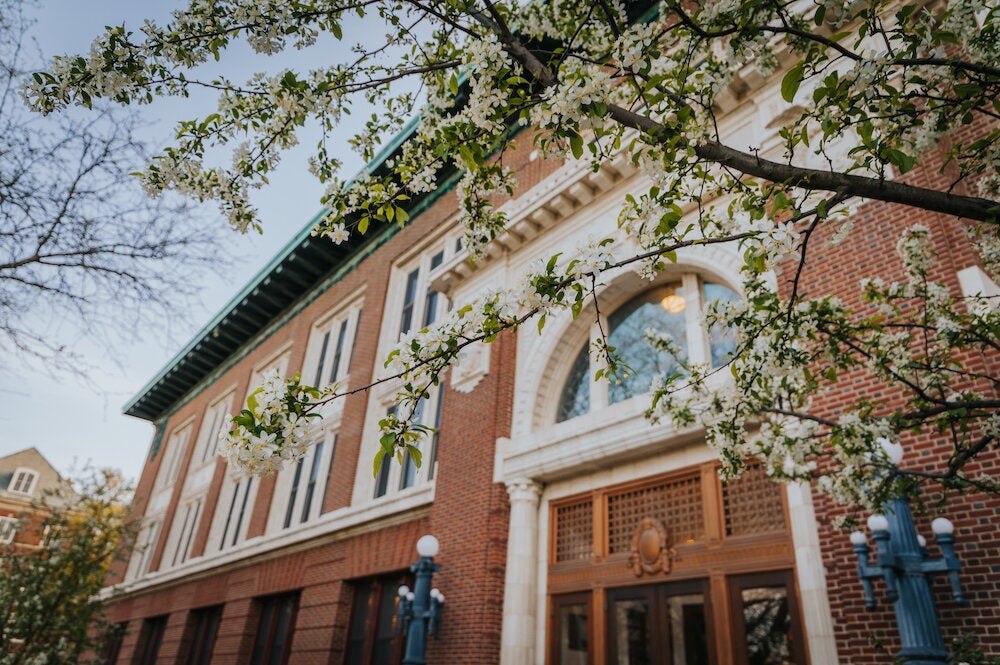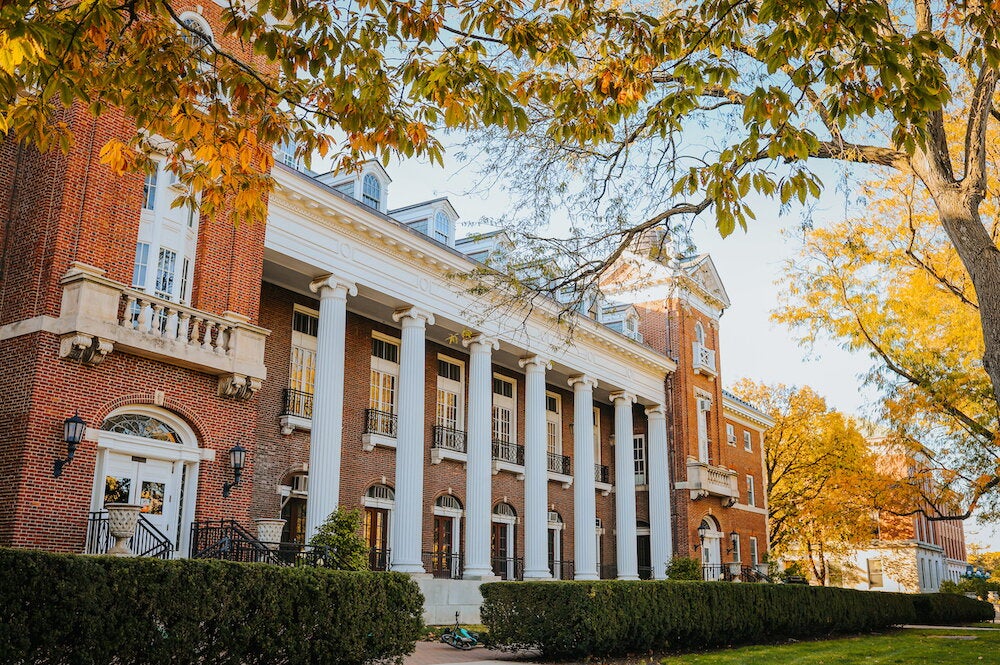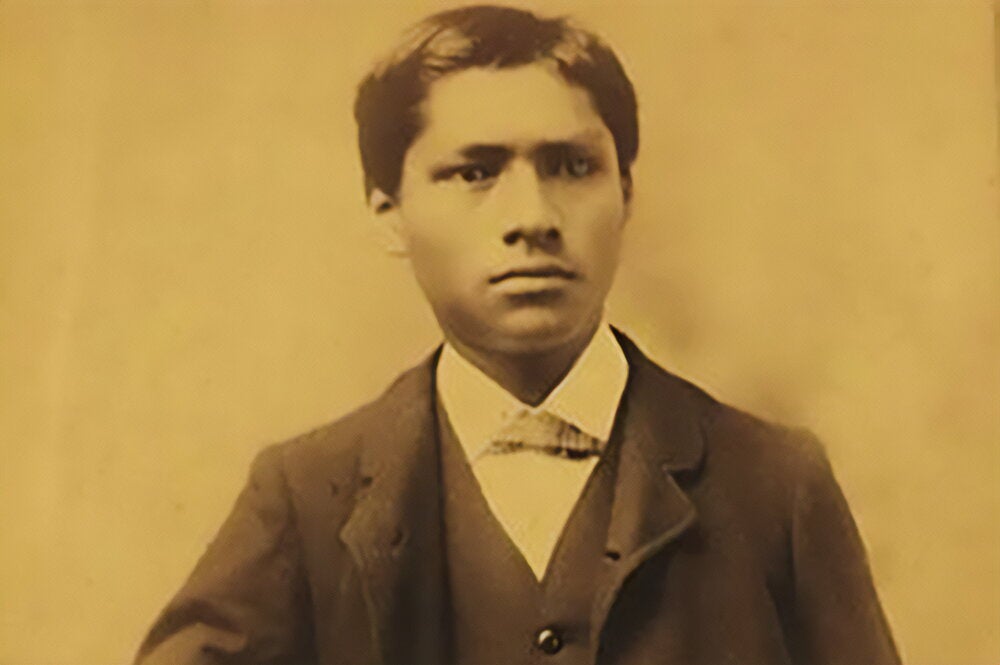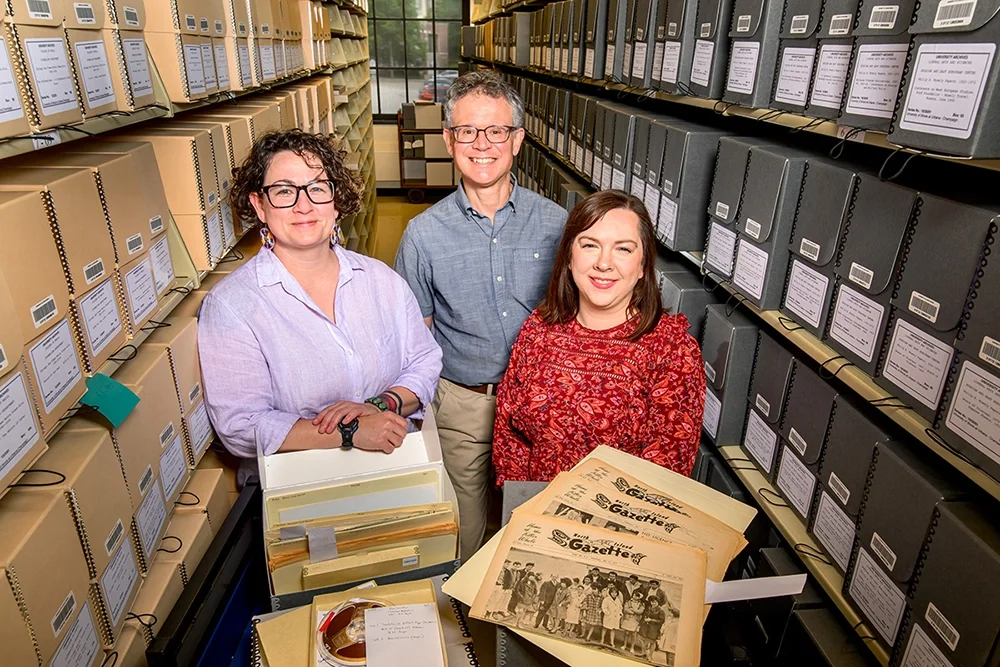
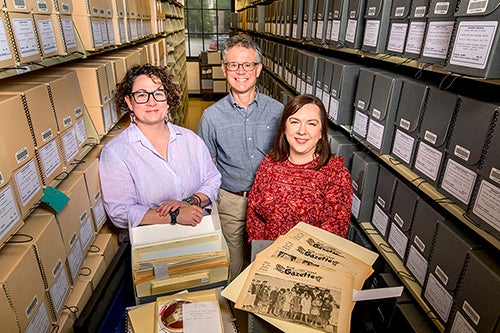
Researchers at the University of Illinois Urbana-Champaign are working with Native American tribes across the country to digitize oral histories and ethnographic materials collected from tribal members and to make them accessible online.
Illinois is one of seven universities that are part of the Doris Duke Native Oral History Revitalization Project to increase the accessibility of first-person narratives collected in the late 1960s and early 1970s. The project aims to build relationships between the universities and the Native communities documented in the collections, to return copies of the materials to the tribes and to have tribal members serve as co-curators to determine culturally appropriate access to the collections.
Bethany Anderson, the natural and applied sciences archivist for the Archives; Jenny Davis, the director of the American Indian Studies program; and Christopher Prom, the associate dean for digital strategies for the University Library are leading the project at Illinois.
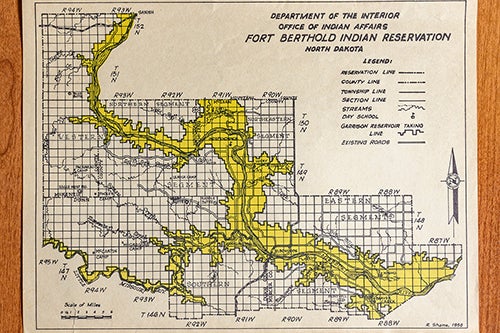
The seven universities were provided Doris Duke grants in the 1960s to collect narratives and record events of tribes throughout the U.S. and in Canada, resulting in more than 6,000 oral histories.
Anthropology professor Edward Bruner directed the work at Illinois, and anthropology graduate students lived with tribes and collected written and recorded interviews, photographs and audiovisual recordings of ceremonies and music. The materials include the journals and notes of the graduate students, transcripts, newspaper clippings, event programs and other paper materials, in addition to the recordings. In 2002, the collection of materials was transferred from the Department of Anthropology to the Archives.
“We could provide good preservation and make them more accessible. We knew the collection provided really good documentation about people in society who there really wasn’t a lot of documentation about,” said Prom, who led the transfer of the materials to the Archives.
A large part of the work now is returning these materials to their originating Native communities.
“Native communities may have not realized that these materials would end up in an archival repository someday,” Anderson said. “Our goals are to reconnect these recordings with their originating communities and the individuals and families represented in the materials. Above all, it is important to recognize the tribal sovereignty of the materials and to do this work collaboratively and ethically.”
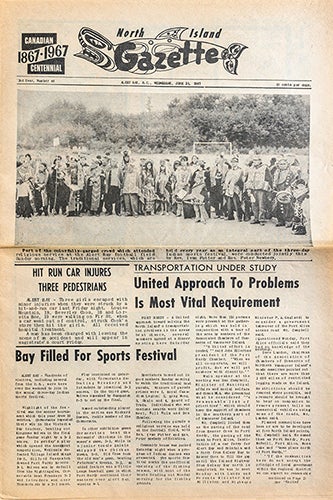
North Island Gazette, June 21, 1967, Box 32, Doris Duke Indian Oral History Program Archives, Record Series 15/2/32, University of Illinois Archives. (Photo by Fred Zwicky.)
Since the revitalization project began in early 2021, the researchers and several student workers have been reviewing the materials and determining what tribes were documented. They have digitized most of the audiovisual materials and oral history transcripts that are not deemed culturally sensitive, and they have been reaching out to tribes to provide them with access to the materials. They have worked closely with the Northern Arapaho, Eastern Shoshone and Hopi tribes, among others.
The tribes who have been contacted didn’t know the materials existed, and they were eager to have access to them, Davis said.
The tribes will determine the level of access for the materials – whether they can be made publicly available, limited to tribal members or available only to a select group of people within a tribe. Davis said some of the recordings include ceremonial practices or music that are considered sacred and are not shared beyond the tribal community or certain people within the community.
Along with the recommendations from the tribes, the researchers are drawing on best practices governing similar issues to help determine how to handle the collection. For example, the federal Native American Graves Protection and Repatriation Act does not govern archival materials such as those that are part of this project. But it is similar in that it deals with sacred objects that have been collected and are housed in university spaces and have been used for research, Davis said. The researchers are working with the U of I’s NAGPRA office and operating within the spirit of those policies.
“Part of NAGPRA is about consulting with tribes and creating good relationships with them. This is the same work,” Davis said.
They also are looking at the processes of research review boards at the tribal level and consulting with the Newberry Library in Chicago, which has a collection of oral histories from Chicago’s Native American community.
“My dream is that the campus gets to the place where we’re leading best practices, rather than trying to keep up with what is minimally required,” Davis said. “It helps to have good examples of best practices, not because they are required but because we want to have these relationships and have the communities connected to these materials and make sure things on campus are being cared for in alignment with how the communities want them to be cared for.”
The researchers said that tribal members also can provide a broader context to the collections to help people understand what they are seeing or hearing.
“We didn’t really know the full extent of the materials, how tribal communities would describe them and their cultural significance. That’s the exciting part of what is being added now,” Prom said.
Once the project is finished, tribes from around the country will be able to look at the materials online and have access to pieces of their histories, he said. The researchers will invite tribal representatives to come to campus and see the full collection, and tribes will be given original materials or copies of them.
The collections and the experience of working with tribes on curation will provide a valuable teaching tool for students in how to work with archival materials and on collaborative projects with Indigenous communities, and for Native students to work with materials from their tribes, Davis said.
“Students get a lot out of being able to interact with those materials. Especially on this campus, there are a lot of students for whom Native people are still an abstract myth. These are real people talking about their lives, and there’s the potential to connect students to the materials and then connect them to community-based projects,” Davis said.
Although the project grant ends in December, the work will be ongoing.
“Building relationships and working through the complexities of the materials takes time. Folks need time to review these materials and talk about them. This is not the sort of work that can be rushed,” Anderson said. “We see these as long-term relationships, beyond the bounds of the project.”
